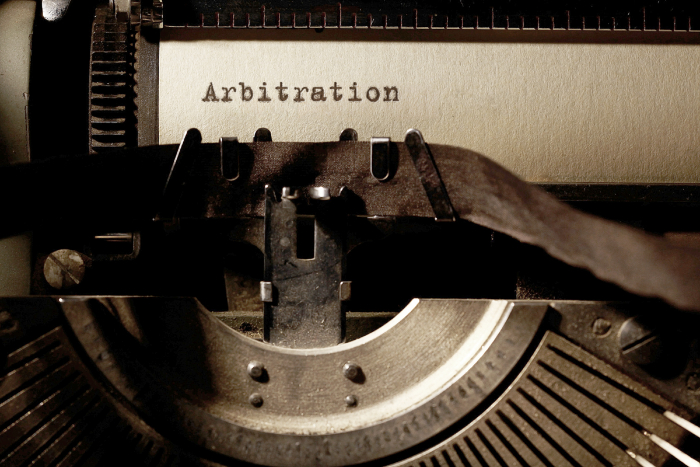Search
The House just delivered a big blow to employment arbitration agreements.

Image Credit: Photofunia.com
It’s called the FAIR Act, which stands for the Forced Arbitration Injustice Repeal Act. The FAIR Act would amend the Federal Arbitration Act to prohibit a pre-dispute arbitration agreement from being valid or enforceable if it requires arbitration of an employment, consumer, antitrust, or civil rights dispute.
No arbitration, yes class action.
Not only does the FAIR Act void any employment arbitration agreement entered into before any employment claims arise, but it also outlaws pre-dispute joint-action waivers. Translation: your employees will be able to bring class and collective action claims (e.g. wage and hour claims) and you won’t be able to stop it.
FAIR Act passes in the House, but…
The FAIR Act passed in the House last week by a vote of 225 to 186, mostly on party lines. (Two Republicans joined the Democrats voting in favor of the bill.) The problem now for this bill’s prospects is that it has to pass the Republican-controlled Senate AND President Trump must sign it, neither of which seem likely today.
What if the FAIR Act became law? What then?
But, let’s assume that the FAIR Act became law, does that mean arbitration of employment claims is dead? Well, theoretically nothing in the FAIR Act would stop and employer and employee from agreeing to arbitrate employment claims after they arise. Although, that doesn’t seem like a likely scenario. So, employment arbitration would be on life support.
Instead, you’d probably see more jury-trial waivers. A jury-trial waiver is just like it sounds; it’s an agreement in which both employer and employee waive the right to a jury trial should any claim between them get litigated later. I like jury-trial waivers because you get the benefit of going to court while mitigating the risk of an unreasonable jury award. But, depending on where you conduct business, your mileage may vary. For example, New Jersey’s Law Against Discrimination explicitly bans them.
For now, however, under the FAA, and on the heels of the Supreme Court’s decision in Epic Systems v. Lewis, arbitration agreements remain a viable way to avoid both the publicity (and many would say, increased cost) of employment litigation and class/collective action claims.
 The Employer Handbook Blog
The Employer Handbook Blog


